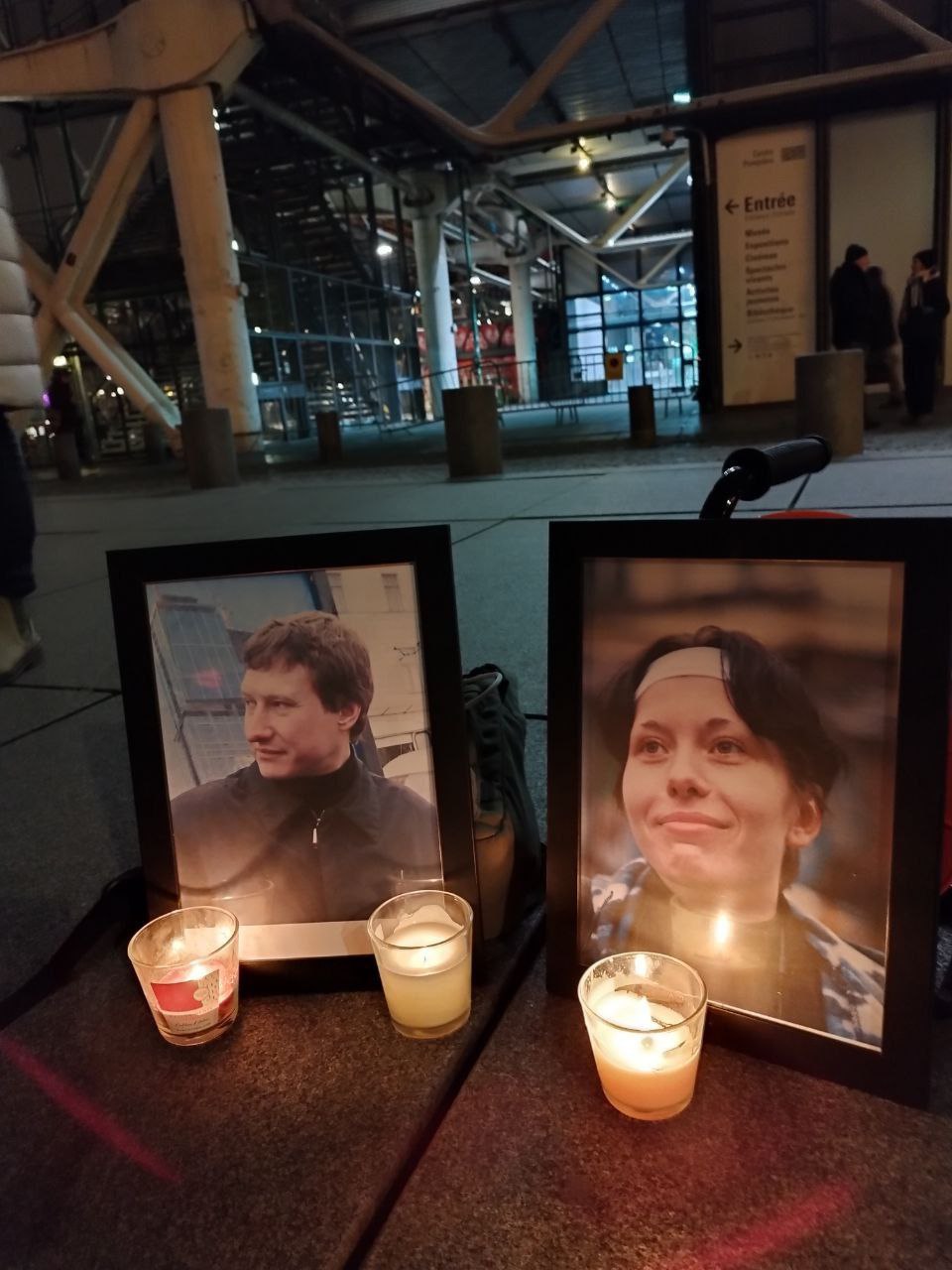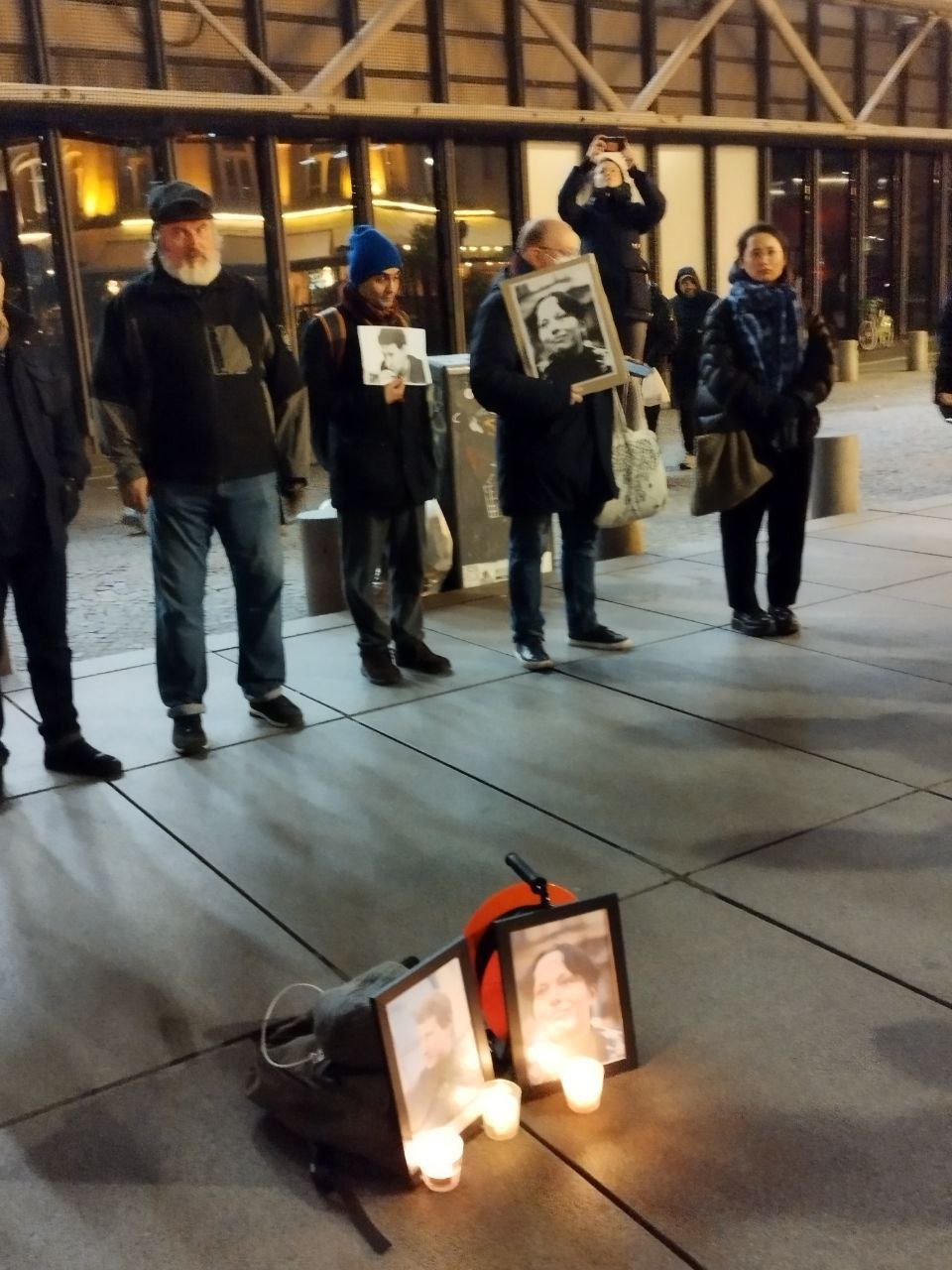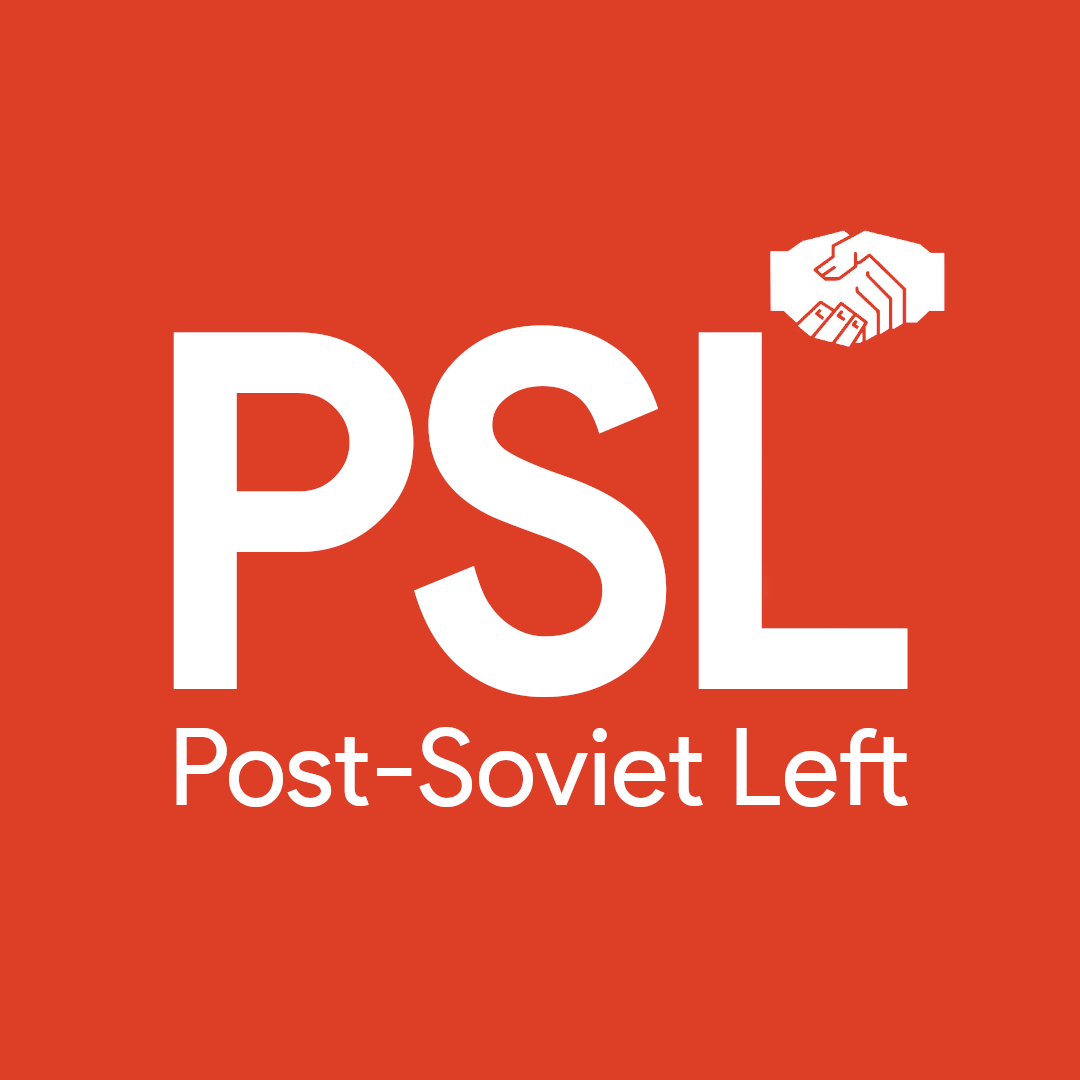On January 19, in various European countries, demonstrations of antifascist solidarity organized or supported by our organization took place.
In Düsseldorf , our event was dedicated to commemorating Russian antifascists and supporting imprisoned antifascists in Russia.
The gathering took place in a warm, supportive atmosphere. German guests also actively expressed solidarity with Russian antifascists, eagerly joined the international commemorative initiative, wrote letters of support, and called for continuing this important work.
The event served as another step toward strengthening global solidarity in the struggle for democracy and socialism.
On the same day in Paris, two actions were held. They were organized by Russian and Ukrainian antifascist immigrants with the support of our organization, the “Free Azat” association, and many others.
First, the documentary film Lyubite Menya, Pozhaluysta (“Love Me, Please”), directed by Valery Balayan and dedicated to Nastya Baburova, was screened at Paris’s Reforum. A discussion followed the screening.
Then, around 30 people gathered on Igor Stravinsky Square for a street action. Participants—Russians, Ukrainians, and French—spoke about the rise of ultra-right violence and xenophobia in the current era and the role of military conflicts initiated by the ruling classes in fueling these sentiments.
Our activist, Andrey Demidov, spoke about how war itself is the environment that nourishes the far right:
“The left has a slogan: ‘No War but the Class War.’ And it’s true. Wars waged in the name of ‘national interests,’ borders, territories… are easily appropriated by the far right. We see this in the ongoing war in Ukraine, where ultra-right groups are actively involved on both sides of the border. They receive weapons, combat experience, and awards. They are preparing to seize power.
What should the left do in this situation? At a minimum, refuse to play someone else’s game.
At most, wage an uncompromising struggle against every form of fascism, no matter what national colors it might wear.
Our organization, PSL, has taken the initiative to ban the activities of right-wing groups that recruit mercenaries for both sides of the conflict.
In the near future, a list of these groups will be submitted to the French parliament and other European legislatures. I believe this will be the best way to honor the memory of Markelov and Baburova.”
In Berlin, PSL activists spoke at the conference “The Left Under Pressure, Migrant Self-Organization, and a Vision for the Future.” The following points were made: the growth of right-wing movements has brought us to a qualitatively new situation. While the left has been splitting hairs about how to build a new International, the right has long since created its own “black (or brown) International.”
Fascists in Russia and Ukraine are closely connected with numerous ultra-right organizations in Europe—a network that works in a well-coordinated and effective manner.
The negative experience of attempting to counter fascism solely by parliamentary means was also discussed. In this context, the MigrantCollective initiative as a way of resisting the rightward shift in Europe received positive feedback from conference participants.
After all, migrants—who are the most vulnerable social group of the working class—are hardest hit by those who love the “caliper” (i.e., racists). At the same time, migrant self-organization has enormous potential. As the saying goes, “Saving the drowning is the work of the drowning themselves,” and who knows—perhaps in the near future it will be migrants who can become the key driving force for radical change in Europe.
On January 19 in Belgrade, around 20 people (a full house) gathered at the “Sreda Obitaniya” space to watch V. Balayan’s film about Nastya Baburova. According to activists from the “Left Club of Belgrade,” there was an open, horizontal atmosphere for discussing the film and the participants’ personal stories tied to subcultures in the early 2000s.
Actions also took place in Russia on January 19, despite all the difficulties of wartime. According to “Antifa.ru,” events of various formats were held in 13 cities, including Moscow, St. Petersburg, Kazan, Saratov, and Omsk.
Join us for upcoming actions via our Telegram bot: @postsovietleft_bot


